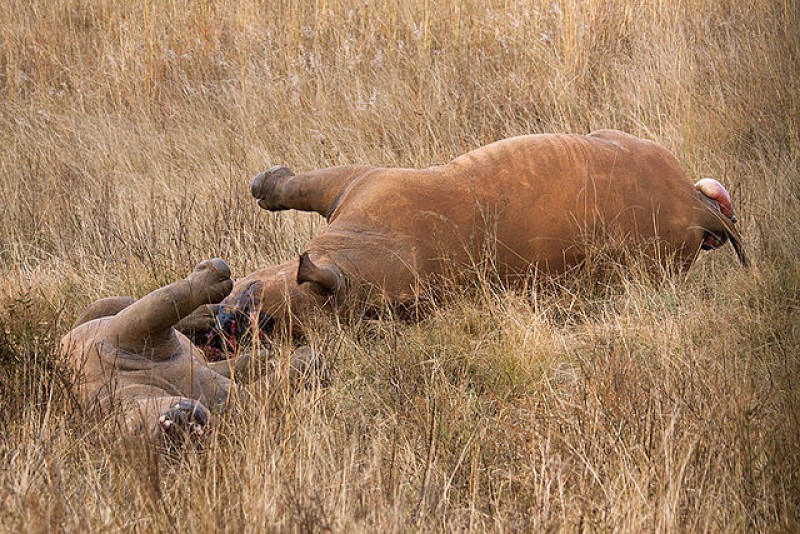The report was put together by the KwaZulu-Natal Department of Environmental Affairs and is usually concealed because it allegedly contains sensitive information about anti-poaching operations.
However, following extensive pressure, the figures were made available to the Democratic Alliance, South Africa’s opposition party, which published them on its website.
Experts suggest that sometimes authorities turn a blind eye or even participate in the poaching.
“There is indeed suspicion of collusion between criminal syndicates and those tasked with conservation,” said Ravi Pillay from the department that produced the report.
Earlier this year, a local policeman was sentenced to 10 years in prison for the possession of freshly cut rhino horns and an unlicensed firearm.
South Africa is home to the estimated 80% of the world’s rhino population. Rhino poaching in the country - nearly eliminated at the turn of the century - experienced a massive resurgence after 2007, fuelled by a booming demand for rhino horns in China, where they are used in traditional medicine. Between 2007 and 2013, the number of poaching incidents rose 93 times.
Although the incidents dropped again in recent years due to improved surveillance and preventive measures such as dehorning, the rhino population keeps declining.
In addition, there are concerns that the recent spike in poaching in KwaZulu-Natal might have more structural causes, potentially posing a further threat to South Africa’s rhinos. Indeed, rhino sanctuaries, with their income from tourism almost entirely cut off by the pandemic, are finding it increasingly more difficult to contain poaching attempts.
“Rhino security is expensive. Many simply won’t be able to protect their rhinos much longer if they can’t secure more funding,” said Cathy Dean from Save Rhino International. “We’re extremely worried.”
The Democratic Alliance has urged the authorities to take immediate action, proposing measures such as employing more rangers and special task groups or establishing a transparent and public incident reporting system.






